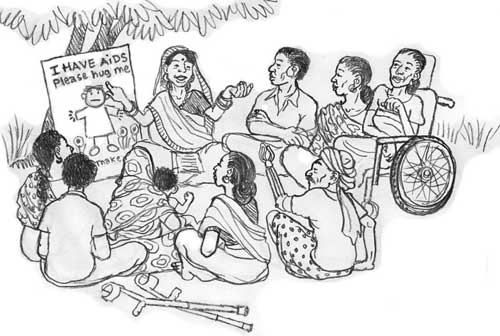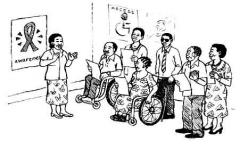Your progress
0%
complete

This element mainly focuses on people with disabilities and their vulnerability to HIV and AIDS, and imited access to mainstream programmes and services
However, CBR also needs to consider that people living with HIV and AIDS may experience disability as a result of the disease and its treatments.
People living with HIV may be considered to have a disability when they develop impairments which, in interaction with their environment, restrict their full and effective participation in society on an equal basis with others.
Learn about how Alexia pushed for laws for people with disabilities and HIV and AIDS in Namibia.


Alexia Manombe-Ncube, Namibia’s first-ever Member of Parliament with a disability, has commented that in many African countries people with disabilities have a higher rate of HIV infection than non-disabled people.
She asserts that the general exclusion of people with disabilities from mainstream society is to blame. For example:
Unfortunately, people with disabilities are sometimes even directly targeted. Women and girls with intellectual impairments in particular may also be easily persuaded into having unsafe sex.
Ms Manombe-Ncube is using her position to push for new laws on disability in the Namibian Parliament. Without providing access to prevention and treatment of HIV and AIDS for people with disabilities, it will be impossible to meet Millennium Development Goal 6: combat HIV and AIDS, as well as other diseases.